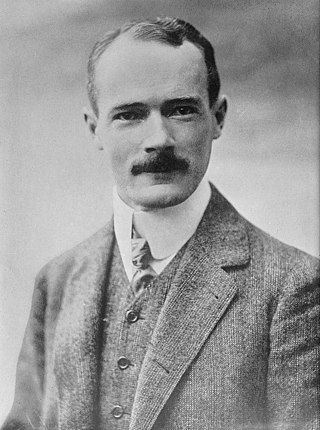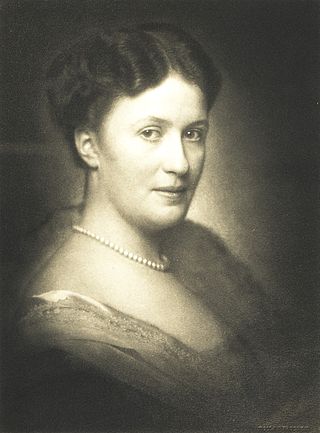
Friedrich Krupp AG Hoesch-Krupp, trading as Krupp, was the largest company in Europe at the beginning of the 20th century as well as Germany's premier weapons manufacturer during both world wars. From the Thirty Years' War to the end of World War II, it produced battleships, U-boats, tanks, howitzers, guns, utilities, and hundreds of other commodities. The company also produced steel used to build railroads in the United States and to cap the Chrysler Building.

Gustav Georg Friedrich Maria Krupp von Bohlen und Halbach was a German foreign service official who became chairman of the board of Friedrich Krupp AG, a heavy industry conglomerate, after his marriage to Bertha Krupp, who had inherited the company. He and his son Alfried would lead the company through two world wars, producing almost everything for the German war machine from U-boats, battleships, howitzers, trains, railway guns, machine guns, cars, tanks, and much more. Krupp produced the Tiger I tank, Big Bertha and the Paris Gun, among other inventions, under Gustav. Following World War II, plans to prosecute him as a war criminal at the 1945 Nuremberg Trials were dropped because by then he was bedridden, senile, and considered medically unfit for trial. The charges against him were held in abeyance in case he were found fit for trial.

ThyssenKrupp AG is a German industrial engineering and steel production multinational conglomerate. It resulted from the 1999 merger of Thyssen AG and Krupp and has its operational headquarters in Duisburg and Essen. The company claims to be one of the world's largest steel producers, and it was ranked tenth-largest worldwide by revenue in 2015. It is divided into 670 subsidiaries worldwide. The largest shareholders are the Alfried Krupp von Bohlen und Halbach Foundation and Cevian Capital. ThyssenKrupp's products range from machines and industrial services to high-speed trains, elevators, and shipbuilding. The subsidiary ThyssenKrupp Marine Systems also manufactures frigates, corvettes, and submarines for the German and foreign navies.

The United States of America vs. Alfried Krupp, et al., commonly known as the Krupp trial, was the tenth of twelve trials for war crimes that U.S. authorities held in their occupation zone at Nuremberg, Germany, after the end of World War II. It concerned the forced labor enterprises of the Krupp Group and other crimes committed by the company.

Charles "Chip" Eustis Bohlen was an American diplomat, ambassador, and expert on the Soviet Union. He helped shape United States foreign policy during World War II and the Cold War and helped develop the Marshall Plan to rebuild Europe.

Alfried Felix Alwyn Krupp von Bohlen und Halbach, often referred to as Alfried Krupp, was a German industrialist, a competitor in Olympic yacht races, contributor to the SS and a member of the Krupp family, which has been prominent in German industry since the early 19th century. He was convicted after World War II of crimes against humanity for the genocidal manner in which he operated his factories and sentenced to twelve years in prison, subsequently commuted to three years with time served in 1951.

Gustav Georg Friedrich Bohlen-Halbach since 1871 von Bohlen-Halbach was an American-born German diplomat, court master of ceremonies and minister resident for the Grand Duchy of Baden. His fifth son, Gustav Krupp von Bohlen und Halbach, married Bertha Krupp who served as president of the supervisory board of Krupp from 1908 to 1943.

Bertha Krupp von Bohlen und Halbach was a member of the Krupp family, Germany's leading industrial dynasty of the 19th and 20th centuries. As the elder child and heir of Friedrich Alfred Krupp she was the sole proprietor of the Krupp industrial empire from 1902 to 1943, although her husband, Gustav Krupp von Bohlen und Halbach, ran the company in her name. In 1943 ownership of the company was transferred to her son Alfried.
Bohlen is a surname shared by several notable people, among them being:
The Adolf Hitler Fund of German Trade and Industry was a donation from the German employers' association and the "Reichsverband" of German industry, which was established on June 1, 1933, to support the NSDAP. It was named after the Führer of the NSDAP Adolf Hitler and was meant for the "national reconstruction".

Arndt von Bohlen und Halbach was a German socialite and heir to the Krupp family. He was the only child of Alfried Krupp von Bohlen und Halbach and last heir to Krupp.

The Secret Meeting of 20 February 1933 was a secret meeting held by Adolf Hitler and 20 to 25 industrialists at the official residence of the President of the Reichstag Hermann Göring in Berlin. Its purpose was to raise funds for the election campaign of the Nazi Party.

Prince Johann Georg of Hohenzollern was a German prince, and through his marriage to Princess Birgitta of Sweden, was brother-in-law of King Carl XVI Gustaf of Sweden.

The Alfried Krupp von Bohlen und Halbach Foundation is a major German philanthropic foundation, created by and named in honor of Alfried Krupp von Bohlen und Halbach, former owner and head of the Krupp company and a convicted war criminal.
Arnold Halbach was the Prussian Consul in Philadelphia.

Karl Richard Freiherr Michel von Tüßling was a German Schutzstaffel (SS) officer who served in the Nazi government of dictator Adolf Hitler, in the staff of the Reichsführer SS and in the staff of the SS Main Office. From 1936 onwards, he also was the personal adjutant of Reichsleiter and SS-Obergruppenführer Philipp Bouhler, who was in charge of Hitler's Chancellery, head of the euthanasia programme Aktion T4, as well as co-initiator of Aktion 14f13. In 1947 Tüßling provided an affidavit in defence of war criminal Viktor Brack who was sentenced to death at the Nuremberg trials.

The Krupp steelworks, or Krupp foundry, or Krupp cast steel factory in Essen is a historic industrial site of the Ruhr area of North Rhine-Westphalia in western Germany that was known as the "weapons forge of the German Reich".

The Krupp family is a prominent 400-year-old German dynasty from Essen, noted for its production of steel, artillery, ammunition and other armaments.














